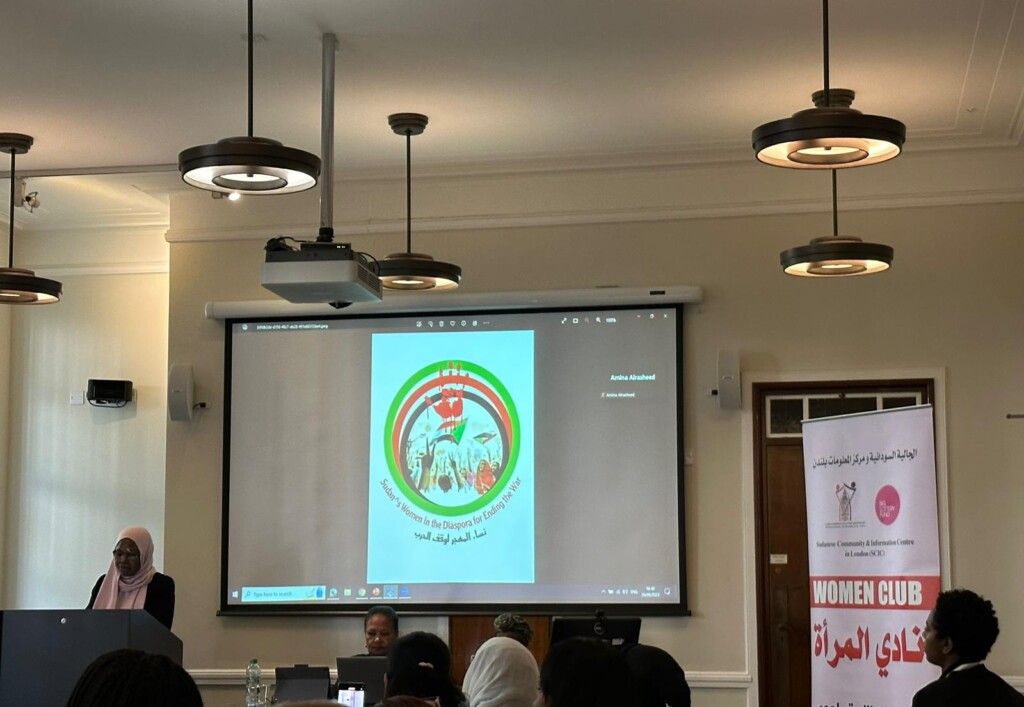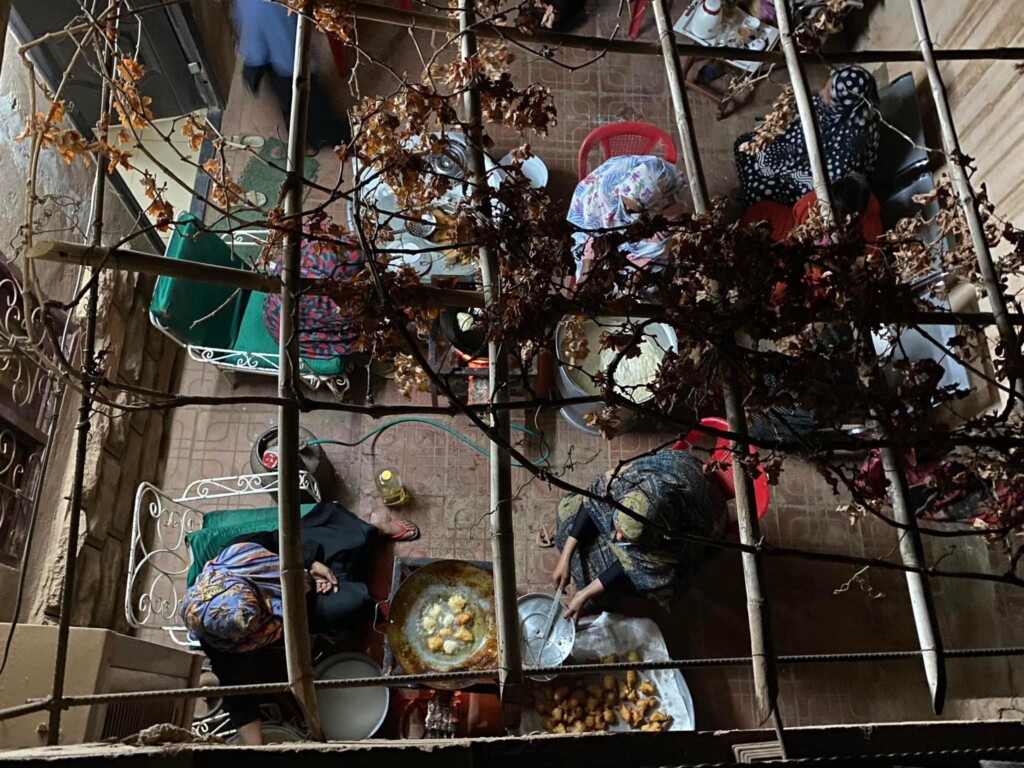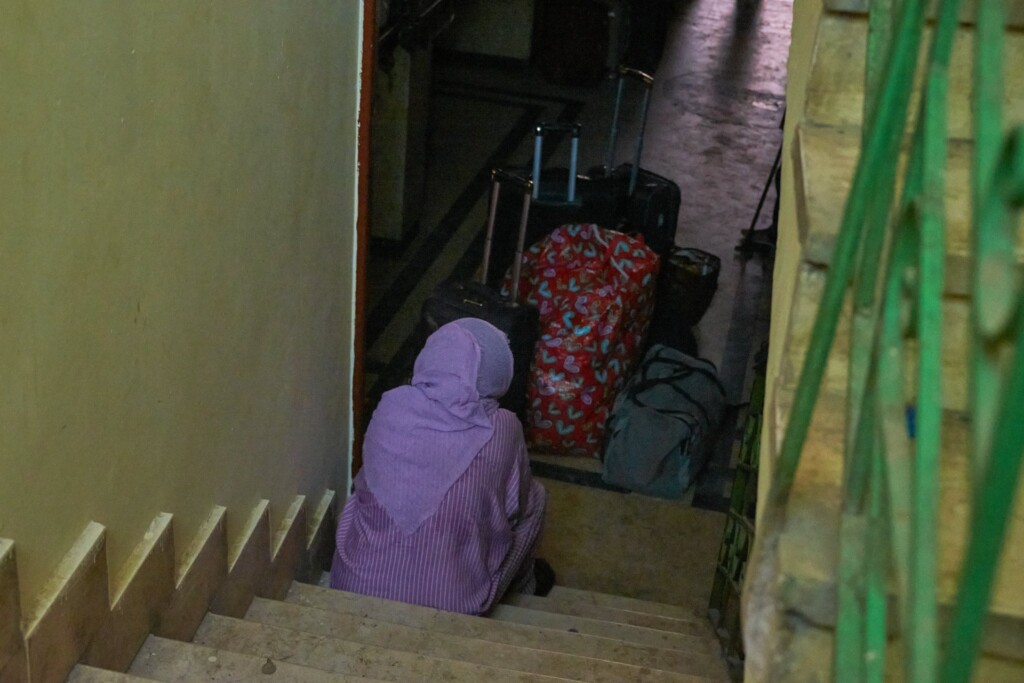Sudanese Women in Diaspora Conference: ‘We can speak for ourselves’

Salwa Ahmed speaks at the Sudanese Women in Diaspora conference in London (Picture: Nadia Awad / RD)
Report and main picture by Nadia Awad
The Sudan Women in the Diaspora for Ending the War (SWDEW) conference on September 29 at the University of London discussed the importance of agency, empowerment, and justice for Sudanese women.
The event featured lectures, discussions, Q&A sessions, poetry, and memorial videos commemorating missing women.
The conference was attended by members of the Sudanese Community and Information Centre’s (SCIC) women’s branch, a bimonthly group based in West London, which offers advocacy and a community space for members of the Sudanese diaspora in London, and other stakeholders.
The SWDEW conference discussed the role of Sudanese women in the war, which is currently entering its sixth month of violence and is adversely impacting women and children, who have endured high rates of displacement and sexual violence.
Talks started with a political overview of the situation by political researcher Alex De Waal. This was followed by a tribute to the role of Sudanese women by journalist Peter Verney. Offering many odes and reflections on the revolutionary role of Sudanese women, Verney followed by decrying their contrastingly minimal role in the transitional government of 2020.
“Women are the unseen bonds that create resilience for the future,” he said. Verney offered cultural examples of women’s resistance and sought to avoid romanticisation by mentioning historical instances of reactionary behaviour.

Author Susanne Jaspers’ talk, Lessons Learned from 30 Years of Humanitarian Assistance, discussed the difficulties facing food distribution in Sudan. These range from the historical weaponisation of food aid as part of counter-insurgency efforts, to current cases of militia stopping convoys of humanitarian aid. Jaspers discussed the implications of these challenges for women specifically, arguing that they must “play a larger role in food management systems.”
Engineer and Professor Salwa Ahmed’s talk focused on the condition of Darfur in the war, declaring Sudan a “collapsed state”. Ahmed discussed the double standard in the treatment of Ukrainian refugees versus Sudanese refugees in the UK.
The UK has received criticism from organisations and MPs for its refusal to adopt a standardised refugee resettlement programme and for its refusal to waive visa requirements for Sudanese nationals to enter the UK and claim asylum. According to the latest Home Office figures on March 31, 5,010 Sudanese asylum applicants have been waiting for an initial decision on their asylum claim, 3,966 of whom have been waiting for over 6 months.

Under the new UK Illegal Migration Bill which was passed on July 20, people who arrive from Sudan will never be able to claim asylum in the UK. Instead, they’ll be detained indefinitely and deported, according to Refugee Action UK.
Attendees also expressed their solidarity with women refugees experiencing adverse treatment in Egypt and other bordering countries, as well as Sudanese women facing challenges in the UK.
The event closed with poetry from a Sudanese spoken-word poet and a video tribute to women and girls currently declared missing due to the war. She discussed the current fragmentations of solidarities into geographically rooted alliances, compared to their former unity. “We are not working together as well as we once did.”
The conference foregrounded the agency of Sudanese women, both in its discussions and in its organisation. “In the end, we’re the only ones who can save our country. We can’t rely on the international community to save us,” said its organisers.











 and then
and then